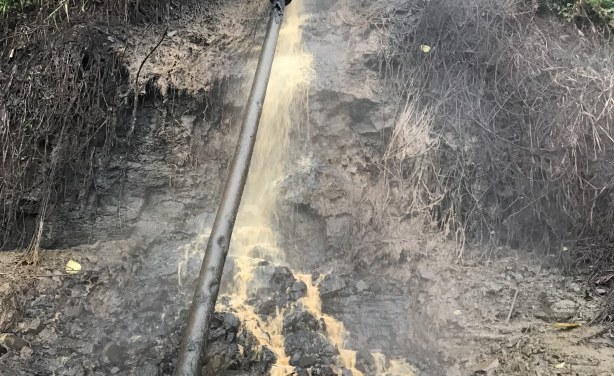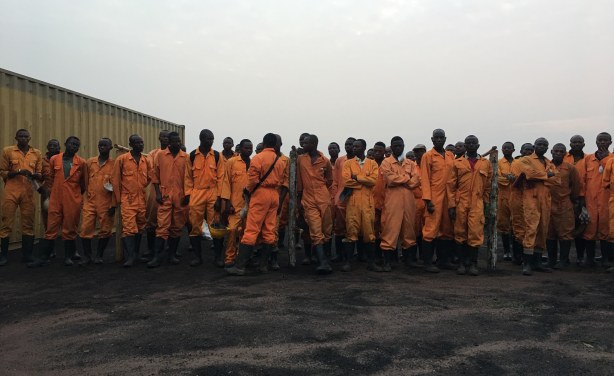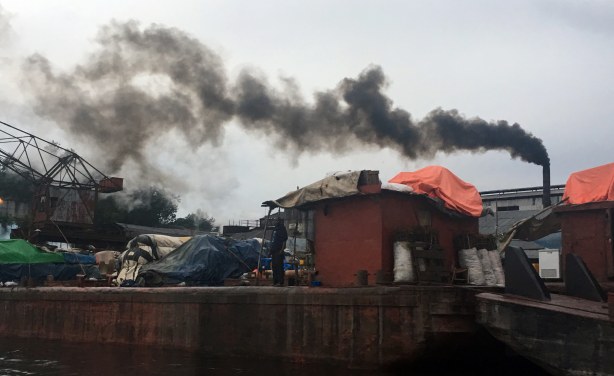A Toxic Mix of Abuses on DR Congo’s Oil Palm Plantations
The largest agricultural employer in the Democratic Republic of Congo is Plantations et Huileries du Congo S.A. (PHC). In a country where two-thirds of the population live in poverty, PHC employs thousands on its oil palm plantations. The company, a subsidiary of Toronto-listed Feronia Inc., has received millions of dollars from the development banks of four European countries - Belgium, Germany, the Netherlands, and the United Kingdom. The employment provided by PHC could be critical in lifting people out of poverty and improving their lives. However, many workers are exposed to toxic chemicals, paid extremely low wages, or housed along streams of industrial waste, a HRW report reveals.

The Lokutu mill pipeline is located to the west of the mill, facing the Congo River. In the picture above, a leak in the pipeline releases some of the mill’s effluents onto the riverbank.

PHC workers await instructions from their supervisor in Yaligimba plantation.

Barges sit on the Congo River next to the Lokutu palm oil mill. Lokutu, February 5, 2019.


